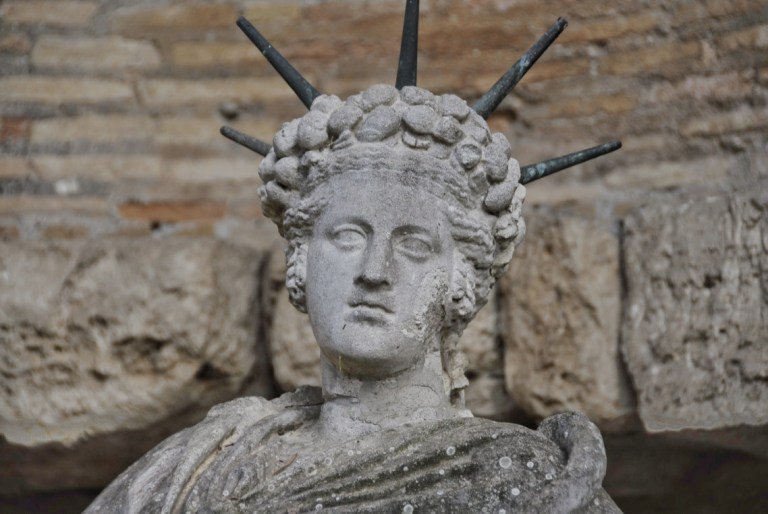
A son of Nana, and a beautiful shepherd of the Phrygian town, Celaenae. (Theocr. xx. 40; Philostr. Epist. 39; Tertul. de Nat. 1.)
His story is related in different ways. According to Ovid (Fast. iv. 221), Cybele loved the beautiful shepherd, and made him her own priest on condition that he should preserve his chastity inviolate.
Atys broke the covenant with a nymph, the daughter of the river-god Sangarius, and was thrown by the goddess into a state of madness, in which he unmanned himself.
When in consequence he wanted to put an end to his life, Cybele changed him into a firtree, which henceforth became sacred to her, and she commanded that, in future, her priests should be eunuchs. (Compare Arnob. adv. Gent. v. 4, and AGDISTIS.)
Another story relates, that Atys, the priest of Cybele, fled into a forest to escape the voluptuous embraces of a Phrygian king, but that he was overtaken, and in the ensuing struggle unmanned his pursuer. The dying king avenged himself by inflicting the same calamity upon Atys. Atys was found by the priests of Cybele under a fir-tree, at the moment he was expiring.
They carried him into the temple of the goddess, and endeavoured to restore him to life, but in vain. Cybele ordained that the death of Atys should be bewailed every year in solemn lamentations, and that henceforth her priests should be eunuchs. (Galloi, Galli, Serv. ad Aen. ix. 116; comp. Lobeck, ad Phrynich. p. 273.)
A third account says, that Cybele, when exposed by her father, the Phrygian king Maeon, was fed by panthers and brought up by shepherdesses, and that she afterwards secretly married Atys, who was subsequently called Papas. At this moment, Cybele was recognised and kindly received by her parents; but when her connexion with Atys became known to them, Maeon ordered Atys, and the shepherdesses among whom she had lived, to be put to death.
Cybele, maddened with grief at this act of her father, traversed the country amid loud lamentations and the sound of cymbals. Phrygia was now visited by an epidemic and scarcity.
The oracle commanded that Attis should be buried, and divine honours paid to Cybele; but as the body of the youth was already in a state of decomposition, the funeral honours were paid to an image of him, which was made as a substitute. (Diod. iii. 58, &c.)
According to a fourth story related by Pausanias (vii. 17. § 5), Atys was a son of the Phrygian king Calaus, and by nature incapable of propagating his race. When he had grown up, he went to Lydia, where he introduced the worship of Cybele.
The grateful goddess conceived such an attachment for him, that Zeus in his anger at it, sent a wild boar into Lydia, which killed many of the inhabitants, and among them Atys also. Atys was believed to be buried in Pessinus under mount Agdistis. (Paus. i. 4. § 5.) He was worshipped in the temples of Cybele in common with this goddess. (vii. 20. § 2; AGDISTIS; Hesych. s. v. Attês.)
In works of art he is represented as a shepherd with flute and staff. His worship appears to have been introduced into Greece at a comparatively late period.
It is an ingenious opinion of Böttiger (Amalthea, i. p. 353, &c.), that the mythus of Atys represents the twofold character of nature, the male and female, concentrated in one.
